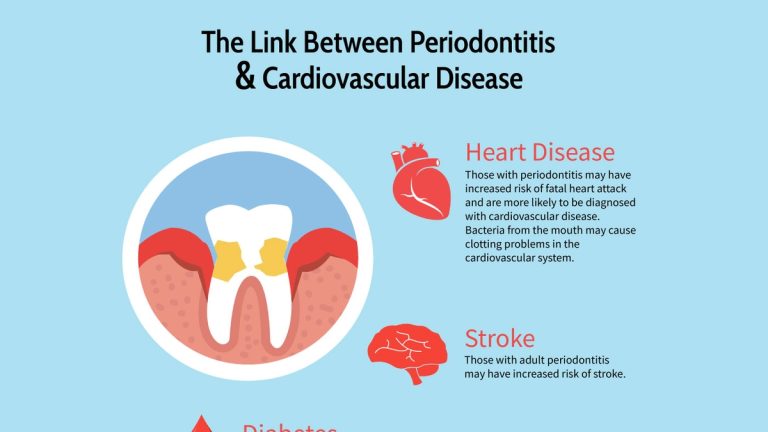The health of our gums may not be the first thing we consider when thinking about overall wellness. However, emerging research is increasingly highlighting a deep connection between our oral health, especially gum health, and cardiovascular disease. This connection is primarily found in the relationship between periodontal disease and heart disease, with inflammation and bacterial interactions serving as key factors.
Understanding the connection between gum health and heart health
Periodontal disease is associated with the accumulation of microbial organisms in the crevice around the teeth. These germs can enter the gums, promoting inflammation and destruction of the supporting tissues for the teeth. This process can lead to bacteria entering the bloodstream, spreading to other parts of the body, increasing inflammation and contributing to the risk of cardiovascular disease.
In addition, the presence of certain bacteria can lead to chronic inflammation of the artery walls, leading to atherosclerosis – the formation of plaque in the arteries. These plaques can lead to serious cardiovascular problems, including heart attacks and strokes. The connection between oral health and heart disease is not just a one-way street. Age and a history of heart problems can also contribute to the development of periodontal disease.
The role of bacterial virulence factors and novel lipids
Research has revealed new classes of lipids produced by these bacteria that play a role in promoting arterial wall inflammation and atherosclerotic plaque formation. In addition, these lipids may have implications for autoimmune disease processes and cholesterol metabolism in the liver, highlighting the far-reaching impact of oral health on overall bodily functions.
Signs, symptoms and preventive measures
It is important to know the common signs of periodontal disease, which include enlarged or reddened gums and bleeding gums. It is recommended to consult a dentist if these signs are evident. To maintain periodontal health, daily brushing and flossing as well as periodic examinations and cleanings by a dentist or hygienist are essential.
Several risk factors are common to both gum disease and heart disease, such as smoking, diabetes and poor dietary habits. Therefore, a healthy lifestyle, including good oral hygiene and dietary habits, is key to maintaining oral and cardiovascular health.
The Oral-Systemic Connection: A Holistic Approach to Health
As our understanding of the oral-systemic connection grows, collaboration between cardiologists and dentists becomes increasingly important in holistic health care. Maintaining good oral health is not just about preventing tooth decay or bad breath. It is vital to our overall well-being, as it is linked to cardiovascular health, diabetes and even respiratory health. Therefore, prioritizing dental care is an essential step in promoting overall wellness.
In conclusion, the connection between gum health and heart health underscores the importance of maintaining good oral hygiene. It’s not just about a bright smile, it’s about a healthy heart. So don’t forget to brush, floss, and schedule regular dental checkups!

